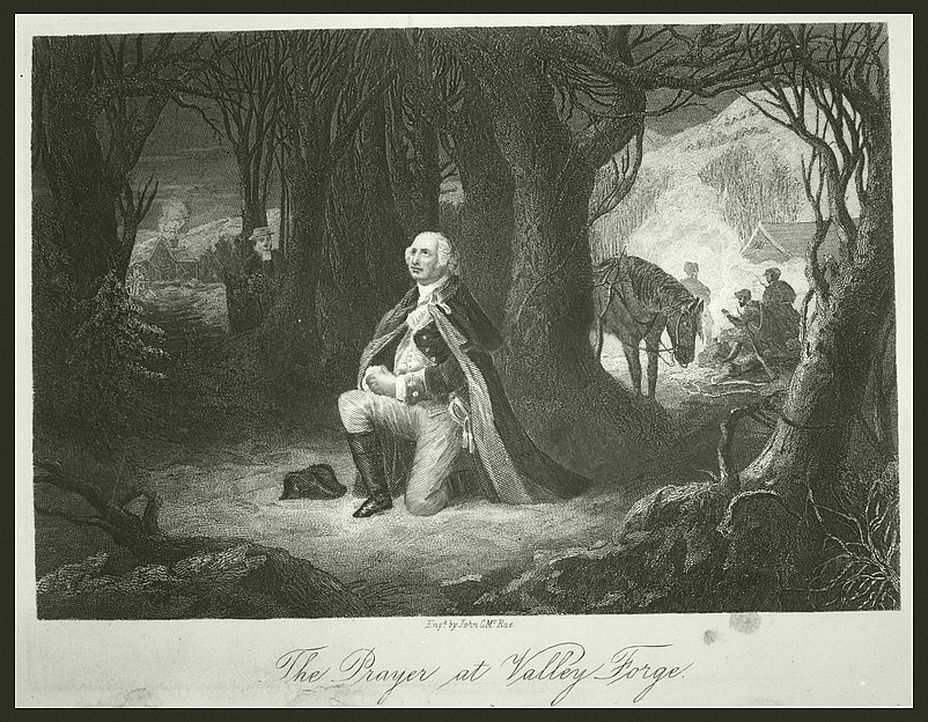Language Lounge
A Monthly Column for Word Lovers
Sermons From the Oval Office
The wall of separation between church and state in America was erected by our forefathers to protect religion from the state, not the other way around.
–President Ronald Reagan, 1984
A recent book, One Nation Under God by Princeton University historian Kevin Kruse, explores the idea that the United States as a Christian nation was promoted in the 1930s and '40s when business and industry leaders were dismayed by New Deal provisions that worked against them. In reaction to this, they recruited and funded conservative clergy to preach that free enterprise and faith went hand in hand, resulting in a conflation of Christianity and capitalism that was fully established by the 1950s. It's an interesting idea and one that is worthy of book-length exploration. It's also not the first time in history that Christianity and capitalism have been perceived as fellow travelers and mutual accomplices. There is, for example, Max Weber's monumental 20th-century monograph, The Protestant Ethic and the Spirit of Capitalism.
Presidents, more than any other individuals, symbolize the values and ethos of the United States. Their words, whether proclamation or prattle, have been better preserved than the words of many who surrounded them, so I thought it would be interesting to look at the ways in which presidents through the centuries have expressed their ideas about Christianity in speech and writing. An online project at the University of California at Santa Barbara, the American Presidency Project, provides an interface for exploring what all the presidents have said and written. Many of the websites of the libraries of more recent presidents also provide excellent search facilities for finding presidential messages in modern times.

Washington at Prayer at Valley Forge by Henry Brueckner, engraved by John C. McRae.
John Adams, the second American president, made a reference to Christianity in his inaugural address in 1797, speaking in the idiom of his day that is a hard study for today's readers:
I feel it to be my duty to add, if a veneration for the religion of a people who profess and call themselves Christians, and a fixed resolution to consider a decent respect for Christianity among the best recommendations for the public service, can enable me in any degree to comply with your wishes, it shall be my strenuous endeavor that this sagacious injunction of the two Houses shall not be without effect.
Nearly 50 years later, president William Henry Harrison made these slightly more digestible remarks in his inaugural address in 1841:
I deem the present occasion sufficiently important and solemn to justify me in expressing to my fellow-citizens a profound reverence for the Christian religion and a thorough conviction that sound morals, religious liberty, and a just sense of religious responsibility are essentially connected with all true and lasting happiness.
Twenty years later, president Abraham Lincoln, in his 1861 inaugural, said:
Intelligence, patriotism, Christianity, and a firm reliance on Him who has never yet forsaken this favored land are still competent to adjust in the best way all our present difficulty.
In 1924, President Calvin Coolidge gave an address at Howard University called "Progress of a People." Coolidge is known for his antipathy to the racial and sectarian intolerance that was rife during his presidency and it seems reasonable to assume that his address at an historically black university was an instance of outreach on his part.
The accomplishments of the colored people in the United States, in the brief historic period since they were brought here from the restrictions of their native continent, can not but make us realize that there is something essential in our civilization which gives it a special power. I think we shall be able to agree that this particular element is the Christian religion, whose influence always and everywhere has been a force for the illumination and advancement of the peoples who have come under its sway.
Speaking at a campaign event in Brooklyn in 1940, Franklin D. Roosevelt had this to say:
Something evil is happening in this country when vast quantities of Republican campaign literature are distributed by organizations that make no secret of their admiration for the dictatorship form of government. Those forces hate democracy and Christianity as two phases of the same civilization. They oppose democracy because it is Christian. They oppose Christianity because it preaches democracy.
President Dwight D. Eisenhower, in an Address before the Council of the Organization of American States in 1953, said:
Today, Mr. Chairman, I think it appropriate to conclude with this one thought: However real and just be our concern with constructive material development, we must never forget that the strength of America continues ever to be the spirit of America. We are Christian nations, deeply conscious that the foundation of all liberty is religious faith.
These quotes can leave no doubt that reverence for Christianity has been a central part of the message of American presidents from the beginning. If there is a shift from earlier to modern times, it is a subtle one, but perhaps there is a suggestion in the quotes above that "the Christian Religion" morphed from something perceived as regulative in the 19th century into something perceived as constitutive in the 20th. What is interesting about all of these examples is that they reflect a respect and reverence for Christianity, without any presidential profession of personal adherence to it.
Now in the 21st century, and notwithstanding the fact that the United States has never had a president who was not nominally a Christian, the message may be getting louder. Presidential wannabe John McCain, addressing Christians United for Israel in 2007, said:
To be proudly pro-American and pro-Israeli is not to hold conflicting loyalties. It is about defending the principles that both countries hold dear. That is why today I stand as I believe so many of you do: a Christian, proudly pro-American and proudly pro-Israel.
In the same year Barack Obama, a contender for the office he eventually rose to, said in a debate setting:
I am proud of my Christian faith. And it informs what I do.
Throughout all of our nearly 250 year history it's unusual for any president or contender for the office to speak of Jesus of Nazareth, or to use the full form "Jesus Christ" in any context other than prayer, or when talking to or about a religious leader. Senator Ted Cruz, however, has broken out of that restriction in his recent announcement of his official candidacy for the 2016 Republican nomination:
There are people who wonder if faith is real. I can tell you, in my family there's not a second of doubt, because were it not for the transformative love of Jesus Christ, I would have been saved [sic] and I would have been raised by a single mom without my father in the household.
Most commentators view Cruz as an outlier unlikely to win nomination and his frequent mention of "Jesus Christ" has attracted notice and satire, as in this New Yorker piece by Andy Borowitz. But it seems that President Ronald Reagan may have spoken very presciently in the quote we began with. Religion today seems to have thoroughly infiltrated the state, perhaps in ways not foreseen by the Founding Fathers, and historian Kruse's argument appears to be supported by the written and spoken record.


